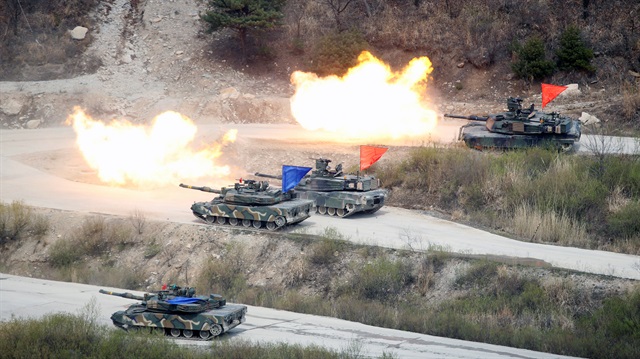
The sides debated the definition of the word "dong-mu," which means childhood friend in the South, but means comrades who experienced the communist revolution together in the North
In the wake of April’s summit between North Korean leader Kim Jong Un and South Korean President Moon Jae-in, the two counties have embarked on a number of cooperation projects designed to avoid running afoul of sanctions.
Besides the dictionary, began in 2006 but halted in 2015 due to political tensions, projects being discussed include the archaeological excavation of a palace in North Korea, performances by a North Korean art troupe in South Korea, pest control projects in the North, and a number of sporting events.
And in a gesture of unity, North Korea changed its time zone by half an hour to realign with the South.
The South's Unification Ministry says preserving and unifying the language is needed to prepare for eventual unification.
Politics is never far away, however, and past dictionary discussions with the North Koreans often involved sensitive terms.
For example, the dictionary's authors had to avoid one term for "him," which was typically used only to apply to North Korean leaders, and the United States could not be mentioned in examples, said Kim, the lexicographer.
The sides debated the definition of the word "dong-mu," which means childhood friend in the South, but has come to mean comrades who experienced the communist revolution together in the North.
"We had to negotiate what an impartial definition is – and ended up defining it as ‘someone who strives together for a single goal,’ Kim said.
Other debates were less serious.
In South Korea, the verb "sal-ji-da" is used to say "hey, you’ve gained some weight."
"It’s insulting in some contexts here too, but it’s a very insulting word to the North Koreans - to a whole new level," Kim said. "They only use this verb for farm animals."








